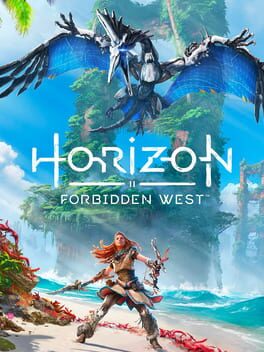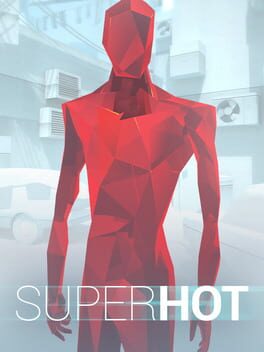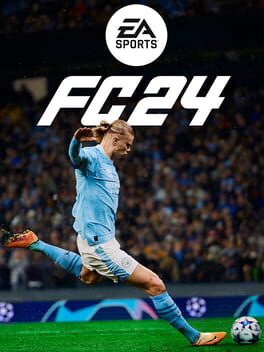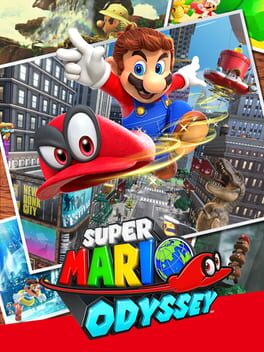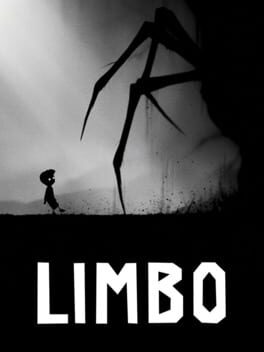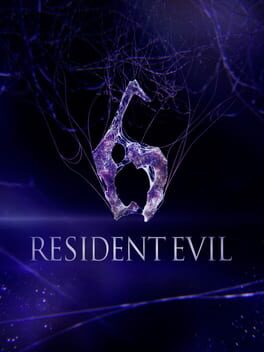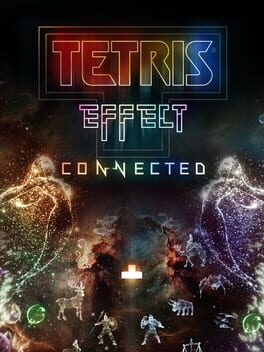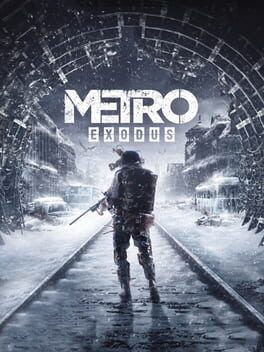Nilsenberg
BACKER
2016
Been struggling for hours to write something of note about this, having just finished it earlier today, and now just laying awake at 4:a.m torn between several essayistic topics to choose from, but they will have to wait (for never, that is). The short thing I will say is that I don't think Miyazaki's intention of meta-reflective nostalgia-baiting really sticks here, as the story (or whatever the hell the russian formalists would call whatever the spines in these games are) are held up here by gameplay fundamentals that are of shocking craft by his/their standards. Totally understandable how the general sentiment around this game on here, and among the community at large, is that this is the natural step from the previous entries, since the surface of this game is so souls-y, but peel back barely half a layer and this'll feel like the most transparent studio-mandated rush-job since FromSoft's rebrand as a certified video game couture brand. From plain (or worse) level-design, to flaccid weapons, this just falls flat for me. Call me old-fashioned, but I don't fancy FromSoftware making easily-digestable content whose intended audience are people who undulates between words like "mid" or "epic". By absolutely astronomical proportions my least favorite FromSoft so far.
I am just over six months older than Ocarina of Time. It's one of the recurring thoughts I had while playing through this game. Seven months and five days, to be exact, is what separates the beginning of me and the release of one of the landmark achievements in the medium, a watershed work often lauded as one of the greatest the medium has ever seen. Despite this, Ocarina of Time feels older than me. Much, much older. I'm not the right person to equate just how much today's games industry genealogically descends from this game alone, so I will leave that for someone more qualified, but suffice it to say, Ocarina of Time feels part of the very fabric of video games. It is a primordial emblem of video games. Video games didn't start here, of course, but Ocarina of Time might just be the video game, the main character of the medium. Much the same way that Vertigo seems to re-centralise and gravitate cinema around its existence, consumed as it is by the very act of looking and creation, Ocarina of Time is the perfect encapsulation of video games for the sheer virtue of being a work about growing up in a medium still very much in an adolescent state. It arrived at the generational crossroads of those who grew up with arcades and those who would grow up with Ocarina of Time. Looking back at the game now, it is impossible to shake the feeling that the game's legacy, as a timestamp for the art of video games, is no accident. We are supposed to return to Ocarina of Time as adults, of course we are. We are supposed to return to see, to realize, the truth of those prophetic passing years. To see the brutality of adulthood as the shadow looming over childhood. To witness, with blinding familiarity, fascism rise from the shallow grave of inaction. There are rough spots in here, sure, but how many legitimately canonical titles retain their statures simply by being good, rather than being technical powerhouses or through the economy of nostalgia. I hope Nintendo does it justice and remaster (not remake) it for the Switch, so that I never have to play it with the fucking Wii U gamepad again in my life, thank you very much.
The type of work that elevates the rest of the medium, daring them to keep up, raising the bar as a result. Despite the sheer bleakness of a game that literally begins with your character re-emerging into the world — reborn from the void — from an apocalyptic bender, it paints every citizen of Revachol with empathy. It's hilarious and beautiful, a rendition of a world in a state of utter despondency where the real detective work is piecemeal-ing together a semblance of fully-formed hope of a brighter tomorrow. That hope begins and ends with its inhabitants, by the very flesh-and-blood toilers who have to pick up the pieces of foregoing generations and keep on carrying on. If ruin and decay swathes us in a thick fog in the game's beginning, then the people we run across and occasionally help throughout the runtime positively reaffirms the values of living, of choosing to wake up from the void. Oblivion will have to wait.
(P.s. petition to make "disco" into the new "based" please)
(P.s. petition to make "disco" into the new "based" please)
Perfectly playable, a billion-dollar polished sheen in service of unimaginative game design. Look, not every game needs to break new ground, but FORBIDDEN WEST would have been dated in 2018. It's a cluttered pile of compromises; it doesn't commit to open-world realism (RDR2, Death Stranding), nor spatial boundlessness and narrative minimalism (BOTW, Elden Ring). Let me feel the thrill and danger of hunting and crafting, please challenge me to tread the vastness of the terrain. A game so ensnared by ecological themes should by all means structure its core gameplay loops around this dance, around this duality of man and nature – the alternative, what we have here, just leaves me cold. Traversing its world becomes a matter of formality in between the story missions, a story revolving around not just saving, but preserving, cherishing, that very world, and the life it bears. If you want to create a world oscillating between resplendent beauty and danger, don't mark machine-territories on the map like a Far Cry game – just let me stumble into the lion's den, and then provide the players with the tools necessary to engage that challenge. The players will remember that location next time, and can then choose to avoid it or tackle it head-on. Providing total clarity of your surroundings (through either the Focus or the map, or worse still, Aloy herself) destroys the world, it defiles the core tenet of its themes. More than that, it makes the game a slog to play through.
2022
Transcendental, and even for From Software’s unparalleled pedigree, a monument. As others have mentioned, late game bosses and enemies are perhaps a tad too ruthless, to the point where the last 10-or-so-hours are spent beating your head against increasingly egregious walls, but even then the game’s most punishing challenges (Malenia, Mohg etc.) are optional, and there are always tools and weapons to experiment with to find the path to victory. Difficulty quirks aside, this stands as one of the most accomplished works of any medium in the past decade or more, an impossibly vast canvas of endless discoveries both horrific and beautiful, set to the tune of oneiric myth. It’s Miyazaki’s THE RETURN. That is all, I have no more words.
2016
One of the most unexpectedly frightening games I’ve ever played, plunging the player into a computational, sisyphean nightmare, a totalitarian paradise where you’re unwittingly assimilated into a protocol of laser-honed destruction. You virtually become a software-based Terminator, at the expense of your free-will and corporeal selfhood. It’s as ingeniously designed as a Mario game, yet it instills paranoia and fear instead of joy. What easily could have been a featureless facade of a concept is given artistic sentience as a work of ominous late-capitalistic portent. A direct oxymoron of fun, creative gameplay and narrative nihilism.
2021
I don't know what they've done with this, but later patches have absolutely mangled what was, at launch at least, if not the most polished FIFA ever (is there even such a thing as a polished FIFA, the gods wondered), then at least the most promising and foundationally good one in years. Hypermotion is a terrible buzzword, but the system alters the flow of everything on the pitch in such a dramatic way that it feels next-gen in comparison to last year's iteration. What we have left after EA has beaten it to death now is a hellishly buggy atrocity that feels just slightly less arcade-y than a pinball machine. Defenders don't track back, which leads to 90% of the goals arising from balls over the top and then a 40m runway. Physicality has been utterly eliminated entirely. Passes are foolproof, and shoot off at approximately 100mph. Hair physics come in and out depending on the cut-scene. It's a trainwreck at the moment. Just genuinely unplayable.
2023
2021
2017
Yeah, of course it is incredible. I’m not a completionist, but I think I kind of have to go back and try to get all moons in this, because it is just so therapeutical, such a crystalline, pure wonderland of joy, that I would do my mental health a disservice by not picking it up again. Mario is gaming’s Chaplin, the manifestation of humanism distilled in its simplest form of expression.
2010
This would’ve been astonishing had it not been for the baffling obscurity of most of the later puzzles obfuscating a cinematic treatise on oppression and purgatorial existence into an all-too frustrating trial-and-error circle-jerk. The “difficulty” bereaves the game of its narrative essence I feel, as LIMBO seems like the type of game that should be played in a single sitting to truly let your emotions be stirred by the bleakness of its tone and the graphic expression of its aesthetic. Still highly recommended for anyone interested in games as more than just time-wasters, but hell, this should’ve been more.
2012
For the sake of my own sanity, I'm done with this. Started well enough, but spiraled into utter cacophony quickly. If anything good came out of this, it came in the form of Capcom's complete 180 on the franchise, and perhaps that the non-linear narrative criss-cross helped them know what not to do with Devil May Cry V. Other than that this is baffling in all the wrong ways. It's like an AI-generated Resident Evil 4 and 5 mashup; squint and it's sort of a finished video game with clear design decisions and thematic ideas, but if you stop squinting it self-destructs like an old spy-movie letter. It wore me down, grinded my initial enthusiasm into powder, until I was so sick of it by the time the credits rolled for Leon's campaign (which, judging by the other campaigns, is the best of the four) that I have to put this down. At least for now. I've spent over 15 hours pushing my way through this monstrosity, and I don't dislike myself nearly enough to let myself continue for another 15 in this economy.
2012
Short, sweet, and immaculate. Played this across two sessions, which probably didn’t do the game justice, but this was still ever so soulful and warm. It almost plays itself but that feels like the point – it communicates its story purely from universal yearnings; a steep difficulty curve would’ve actively worked against it. Entirely coincidental that I finished this on Valentine’s Day, but I couldn’t have played a better game on the wistful nature of togetherness if I tried.
2019
The last level of this is outstanding – the rest of it is brutally compromised by narration so obtuse, and dialogue so crusty, that it becomes a pitiful husk of prestige-TV sentiments in service of raw-as-fuck realism. It’s a prototypical, self-obsessed work of rather hollow maturity. I don’t know if I would’ve even finished this if it wasn’t for the mind-boggling RT-implementation.



